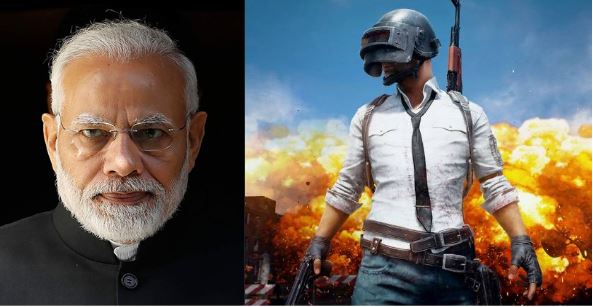Amid growing murmurs of the Modi government mulling to ban another 275 Chinese apps including the immensely popular battle royale game Players Unknown Battlegrounds (PUBG) mobile, the Chinese tech giant Tencent backed PUBG rolled out a new privacy policy as part of its evasive measures to avoid the wrath of the Modi government.
PUBG is worried about being taken out of the shelf of the Indian app market and thereby is making last-ditch attempts to salvage its reputation. The revised privacy policy states that all data PUBG Mobile collects from its Indian players will be stored on local servers within the country.
“Our servers are located in India (in the case of users located in India only), Singapore, Hong Kong SAR and the United States. In addition, our support, engineering and other teams located in our offices around the world (including the People’s Republic of China (“PRC”) (for the purpose of this privacy policy, this term excludes Taiwan, Hong Kong SAR, and Macau SAR), India (in the case of users located in India only), the United States and Hong Kong SAR) will have access to your information,” read the official statement on PUBG’s website.
In terms of sharing information, PUBG Mobile has stated that they utilize third parties so as to provide the best possible experience which includes cloud services for data backup, support ticketing, and fraud detection as well.
According to PUBG, the moment a user logs in to play the game, following are the key information points that are accessed readily by the company.
- Users open ID
- IP address,
- device information (such as application version, battery level, WiFi strength, available space, network type, OS version, platform, carrier, country code, series ID, Android ID, MAC, and IDFV)
- Registration time, login time, and information regarding User’s use of the Game Services, such as the date and time stamps of actions.
PUBG worried just like Facebook
After bringing down the sledgehammer on 59 Chinese espionage apps including Byte Dance owned TikTok, the Chinese companies operating in India have been shuddering in fear that India can anytime call a ban on them too.
Recently, Union Minister of Electronics and Information Technology, Ravi Shankar Prasad, while addressing the G20 Digital Economy Ministerial Meeting had remarked that India wanted to protect its data and all the sovereign data belonged within the country only.
“Yes, we understand the issue of data innovation, data crossflow but we also need to acknowledge the sovereignty over data. Who has sovereign rights over data? We are very clear that data must belong to the sovereign nation concerned to protect the privacy and digital concerns of its people,” added Prasad.
He said that it is time to acknowledge that digital platforms anywhere in the world have to be responsive and accountable towards the sovereign concerns of countries.
Even Facebook’s founder Mark Zuckerberg has been sweating about the TikTok ban and its implications for the social media giant.
According to several media reports, Zuckerberg is worried about the security and privacy of Facebook and fears that if FB drops the ball in context of India’s national security then the Modi government might drop the sledgehammer on it too, just like it did on TikTok–by banning it overnight.
The Modi government had earlier banned the 59 apps saying they were engaged in activities that are “prejudicial to the sovereignty and integrity of India, defense of India, security of state and public order.”
Reported by TFI a couple of days back, the Ministry of Electronics and Information Technology had silently hashed out the remnants of the 59 Chinese apps that were banned a month back. 47 clone apps that were still operating of the banned apps were swiftly taken down, thereby showcasing government’s nimbleness in tackling the threat of Chinese espionage.
There has been no official statement from the Modi government on the banning of PUBG or for that matter any other app but the fear of banning is pushing these apps to be more transparent about their privacy policies. PUBG has taken a start but it would require much more effort on its part to keep the government at bay.
